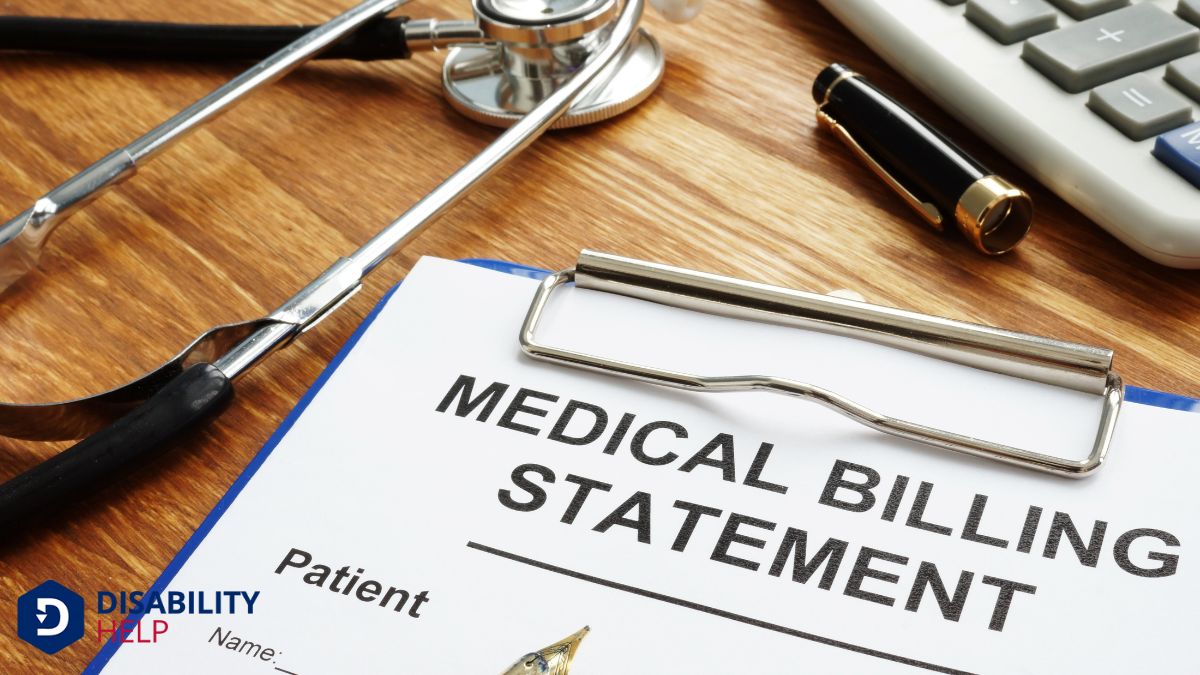When we're faced with unexpected medical expenses due to an accident or injury, it's natural to wonder if we can seek compensation for future medical bills. This question is especially pressing when ongoing treatment is necessary. Understanding the legal grounds for such claims can be quite complex, involving medical documentation and negotiation skills. Let's explore how we might navigate this challenging process and what steps we can take to secure our financial future.
Key Takeaways
- Compensation for future medical bills is claimable if they result from another party's negligenceA legal concept where a party fails to exercise reasonable care, resulting in harm to another person... or wrongdoing.
- Thorough medical documentation and expert testimonies are crucial for proving the necessity of future medical expenses.
- Legal frameworks require proof that future medical costs are certain and reasonably calculable.
- Expert witnesses and legal representationThe way people with disabilities are depicted in media, culture, and politics, often influencing pub... enhance the credibility and accuracy of future medical expense claims.
- Settlement agreements must be carefully negotiated to ensure they cover ongoing and future medical care needs.
Understanding Future Medical Expenses

When we talk about future medical expenses, we're referring to the costs of ongoing and anticipated healthcare needs that arise due to an injury or illness. These expenses can include doctor visits, surgeries, rehabilitationThe process of helping individuals with disabilities achieve and maintain their optimal physical, se..., medications, and specialized therapies that might be required over time.
Understanding these costs is vital because they greatly impact our financial planning and recovery process.
To accurately estimate future medical expenses, we need to take into account several factors. These include the severity of the injury, the expected duration of treatment, and the potential for long-term or permanent disability.
It's important to work with healthcare providers to gather detailed information about potential treatments and costs. By doing so, we make certain we're prepared for the financial demands of managing our health in the future.
Legal Grounds for Claiming Future Medical Bills
Estimating future medical expenses is just one part of the puzzle; understanding how to claim compensation for these anticipated costs is equally important.
To establish legal grounds, we need to show that the future medical bills directly result from another party’s negligence or wrongdoing. This involves gathering evidence like medical reports, expert testimonies, and documentation proving the necessity and likelihood of future treatments.
We must demonstrate a clear connection between the incident and the anticipated medical needs. Legal frameworks often require us to establish that these costs are certain to occur and can be reasonably calculated.
Meeting these criteria strengthens our case for compensation. Let’s remember, the burden of proof lies with us, so thorough preparation is essential for a successful claim.
Types of Medical Costs Covered
Understanding what types of medical costs are covered in a compensation claim is vital for planning and maximizing the benefits. When we’re considering future medical expenses, it’s important to know what might be included.
Typically, compensation can cover a wide range of costs related to ongoing treatment. For instance, expected surgeries, medication, and rehabilitation therapy are often covered. We should also consider future check-ups and any necessary medical equipment, like wheelchairs or prostheticsArtificial devices that replace missing body parts, such as limbs, often used after amputations..
Psychological counselingProfessional guidance to help individuals cope with emotional, mental, or social challenges, particu... and home care services might also be included if they’re related to our injury. It’s significant to thoroughly evaluate our expected medical needs and discuss them with legal and medical professionals to guarantee we’re fully prepared to claim what we’re entitled to.
The Importance of Medical Documentation
Although it might seem like a tedious task, maintaining thorough medical documentation is vital for successfully claiming compensation for future medical bills.
Let’s make sure we capture every detail of our medical journey. This documentation serves as concrete evidence of our injuries and the necessary treatments. It includes medical records, doctor’s notes, and treatment plans, which are key in demonstrating the ongoing nature of our healthcare needs.
By keeping organized records, we can effectively communicate the extent of our condition to insurers or legal representatives. Additionally, detailed records help us track all incurred and anticipated expenses, providing a clear picture of future costs.
Let’s be proactive in managing this documentation, as it strengthens our claim and supports our case for fair compensation.
Role of Expert Witnesses in Establishing Future Costs
As we build our case for future medical compensation, we must consider the role expert witnesses play in establishing these costs.
Expert witnesses bring credibility and precision to our claims. They help quantify future medical expenses, ensuring we're not shortchanged.
Here’s how they assist us:
- Medical Expertise: They evaluate our medical condition and predict future treatments and associated costs.
- Economic Analysis: They assess inflation and medical cost trends to project long-term expenses.
- Life Care Planning: They design an extensive plan considering ongoing care needs and associated costs.
- Testimony: They provide authoritative assessments in court, bolstering our case with objective insights.
Negotiating With Insurance Companies
When negotiating with insurance companies, we must first evaluate the policy coverage limits to guarantee we're aware of the maximum compensation available.
Presenting solid evidence of future medical needs is vital to justify our claims and strengthen our position.
It's essential that we prepare thoroughly to guarantee we secure the compensation necessary for future expenses.
Evaluating Policy Coverage Limits
Understanding the intricacies of evaluating policy coverage limits is essential when negotiating with insurance companies. We must guarantee we're fully aware of what's included and excluded in our policy to properly assess future medical expenses.
Here's how we can approach this:
- Review Policy Documents: Carefully read the fine print to understand the limits on coverage for medical bills. This helps in knowing what’s covered.
- Contact the Insurer: Don’t hesitate to call the insurance company for clarification on any ambiguous terms or limits.
- Compare with Future Needs: Align the policy details with our anticipated medical needs to identify any gaps.
- Seek Professional Advice: Consulting with an insurance expert can provide insights into maximizing our coverage and negotiating better terms.
Presenting Future Medical Evidence
To effectively negotiate with insurance companies, we need to present compelling evidence of our future medical expenses. This means gathering thorough documentation from our healthcare providers. We should ask our doctors for detailed treatment plans, including projected costs and expected duration.
It’s important to request written statements that explain why these treatments are necessary for our recovery.
Next, let's compile past medical records to show the progression of our condition. This provides context and strengthens our case for ongoing care.
We should also include expert opinions, like those from medical specialists, to validate our claims. By preparing a detailed package, we can effectively demonstrate the legitimacy of our future medical needs, making it harder for the insurance company to dispute our claims.
How Legal Representation Can Help
When we're facing the intimidating task of claiming compensation for future medical bills, having legal representation on our side can be invaluable.
They help us navigate complex legal processes, ensuring we don't miss critical details.
With their expertise, we can maximize our compensation potential and secure the support we need for future medical expenses.
Navigating Complex Legal Processes
Although the legal landscape can be intimidating, having professional legal representation simplifies the process of claiming compensation for future medical bills.
We find that an experienced attorney can guide us through complex legal procedures, making it less overwhelming. Here’s how they can assist:
- Understanding Legal Jargon: Lawyers break down complex terms and legalese, ensuring we fully grasp our rights and obligations.
- Filing Accurate Paperwork: They handle all documentation, reducing the risk of errors that could delay or jeopardize our claim.
- Negotiating with Insurers: Skilled in negotiation, they advocate on our behalf to secure a fair settlement.
- Providing Court Representation: If necessary, they’re prepared to represent us in court, presenting a strong case for our compensation needs.
Together, we navigate these challenges confidently.
Maximizing Compensation Potential
By enlisting the help of a seasoned attorney, we greatly enhance our chances of maximizing compensation potential for future medical bills.
Attorneys bring a wealth of experience in dealing with insurance companies and legal systems. They know how to effectively navigate the complexities that often overwhelm us. Their expertise guarantees that we’re not shortchanged and receive what we rightfully deserve.
A lawyer can accurately assess the true value of our claims, including future medical expenses we might overlook. They gather the necessary documentation and negotiate assertively on our behalf.
This proactive approach can lead to higher settlements than we might achieve alone. By having professional legal representation, we can focus on recovery, confident that our financial interests are being safeguarded.
The Impact of Settlement Agreements
Settlement agreements greatly influence the way we approach claiming compensation for future medical bills. They can determine how much we receive and how we'll cover ongoing medical expenses.
To navigate these agreements successfully, we should consider several factors:
- Terms and Conditions: Understand the specific terms outlined within the agreement. Are future medical bills explicitly included?
- Finality: Once signed, settlement agreements are often final. We should be certain everything we need is covered before agreeing.
- Negotiation: We have the right to negotiate terms. Let's make sure the settlement reflects our needs for future care.
- Legal Advice: Consulting with a lawyer can help us understand the agreement's impact on our future medical claims.
Understanding these elements can help us make informed decisions.
Steps to Prepare for a Legal Claim

Before diving into the legal process, we need to prepare thoroughly to affirm our claim is strong and all-encompassing.
First, let’s gather all relevant medical records and bills. These documents will serve as evidence of our ongoing and future medical needs.
Next, consulting with a legal professional experienced in personal injury claims is vital. They’ll help us understand the nuances of our case and guide us through the legal landscape.
We should also document any changes in our daily life caused by our injury. Keeping a journal of physical limitations or emotional struggles can provide valuable insight into our situation.
Finally, let’s verify we’re aware of any deadlines for filing our claim, as missing these can jeopardize our chances for compensation.
Conclusion
In managing claims for future medical bills, we must remember the importance of thorough documentation and expert opinions. Establishing a direct link between the incident and future expenses is vital. By collaborating with legal and medical professionals, we can strengthen our case and guarantee that our claim accurately reflects our ongoing healthcare needs. Let's remain proactive, informed, and persistent in negotiating with insurance companies to secure the compensation we deserve for future medical expenses.






